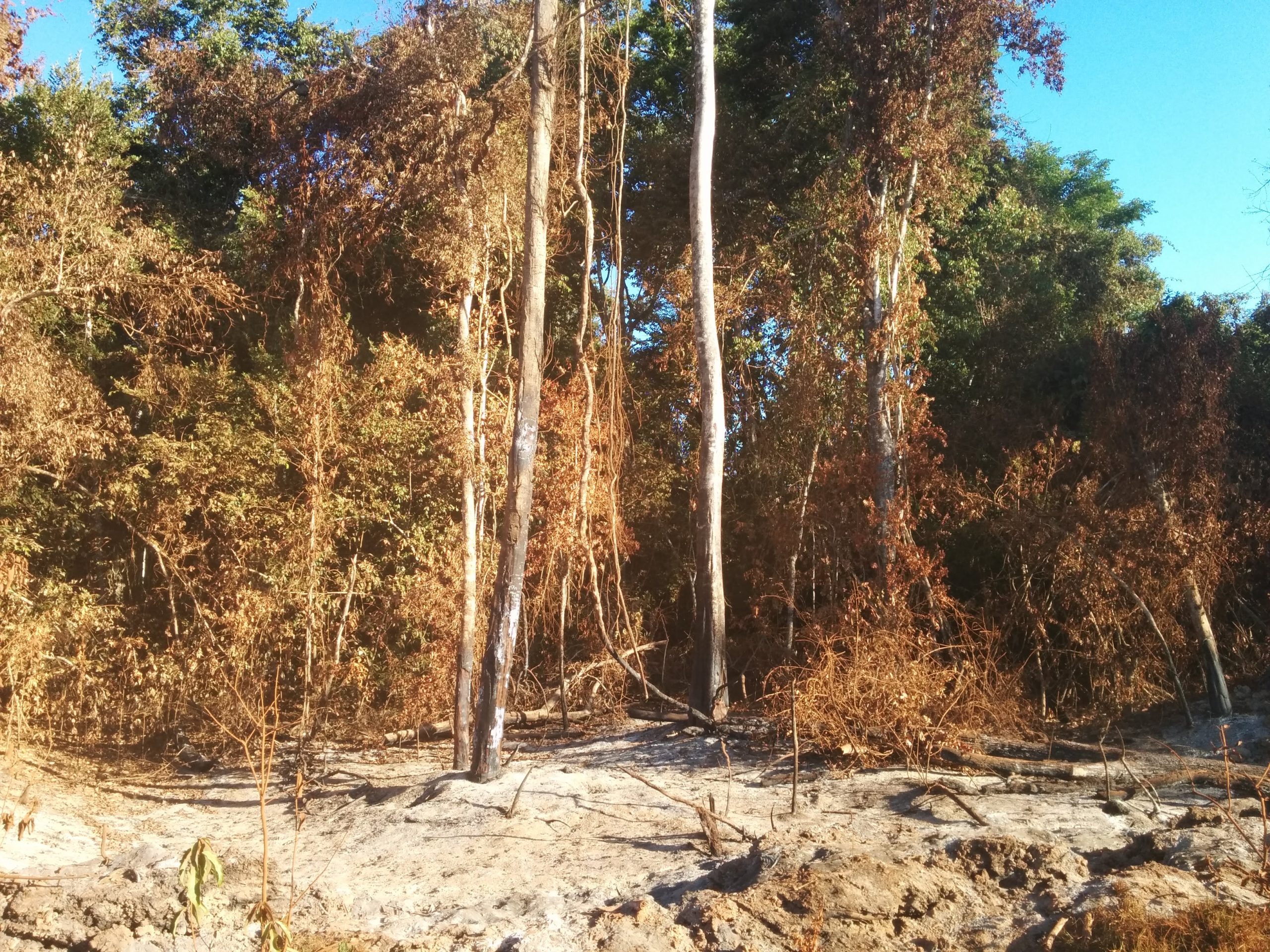
Posted by Ted Feldpausch
12 May 2021Two complementary PhD studentships have been funded thanks to donations from long-term University of Exeter supporters, the A. G. Leventis Foundation. Both will be based within the Global Systems Institute and focus on tropical forest protection and restoration, specifically understanding carbon storage within degraded and recovering forest ecosystems.
Tropical forest protection and restoration is an urgent priority for rebalancing the carbon cycle as well as preserving the most biodiverse habitats on earth. The combined effects of a hotter and drier climate and land-use is making forests more susceptible to fire, resulting in forest degradation that is increasing the loss of carbon and diversity across Amazonia.
One PhD studentship will bring a bottom-up approach to developing understanding of the ecological and physical mechanisms underlying resilience in degraded and recovering tropical forests. The second studentship will take a top-down approach to quantifying and mapping forest carbon stocks and degradation at landscape scales, leveraging recently available data from NASA’s Global Ecosystem Dynamics Investigation (GEDI) instrument and upcoming satellite radar missions (BIOMASS, NISAR) against field data.
This research will build on field-based and lidar (remote sensing) work in Brazil and Peru coordinated by Dr Ted Feldpausch, Associate Professor at the University of Exeter, through the SilvaCarbon Fund, an interagency technical cooperation programme to enhance the capacity of tropical countries to measure, monitor, and report on carbon in their forests and other lands.
Dr Feldpausch, said: “By analysing the interaction between forest dynamics and composition and how these vary with climate and environment, this research will build critical understanding of how forests recover from disturbance. This includes the rate at which carbon is stored in recovering biomass, allowing us to see at what point forests become carbon sinks rather than sources. This knowledge is vital for helping to reduce carbon in the atmosphere.”
Professor Tim Lenton, Director of the Global Systems Institute said: “We are incredibly grateful for this new funding. Resilience is a key measure of the ability of ecosystems to recover from disturbance, and long-term trends in resilience can provide warning of an ecosystem being pushed beyond a ‘tipping point’ by external stresses. This research is crucial in order to understand what places the carbon sink of tropical forests at risk, and what protections are needed to most effectively reduce that risk.”
The A. G. Leventis Foundation has previously supported the work of Dr Tom Powell through a Fellowship in the Global Systems Institute. He said: “It is wonderful that The A. G. Leventis Foundation is extending its support of this crucial research. We have been able to make real progress in the field of carbon sequestration and understanding the impact of forest degradation and recovery, and these additional research positions will make an enormous difference to our capabilities. I’m very thankful to the Foundation.”
More info and to apply:
Using novel satellite data to assess degradation and resilience of Amazon carbon stocks, Global Systems Institute/Geography– PhD (Funded)
University of Exeter website http://www.exeter.ac.uk/studying/funding/award/?id=4142
Ecological and environmental drivers of carbon storage and resilience in degraded areas of the Amazon, Global Systems Institute/Geography – PhD (Funded) 4141
University if Exeter website http://www.exeter.ac.uk/studying/funding/award/?id=4141
Header image: Logged and burned forest in southern Amazonia (image source: Ted Feldpausch)

University of Exeter